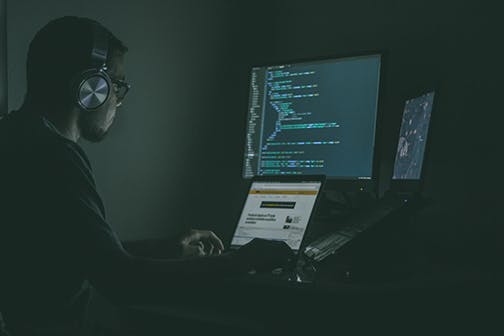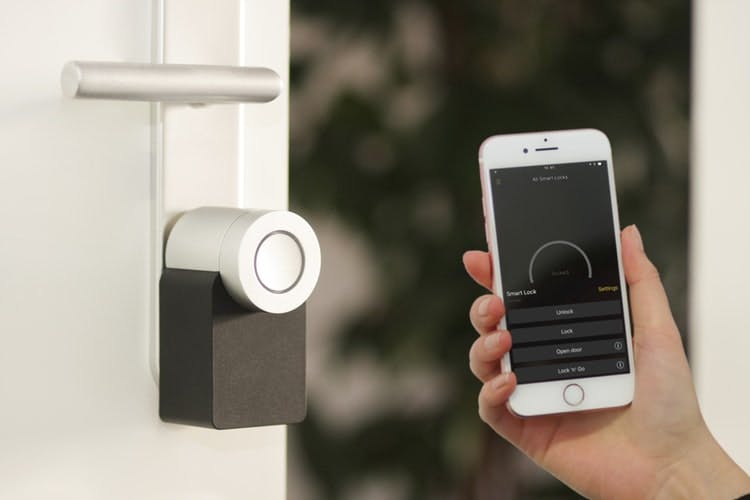
Digital Security and Your Home
In today’s world, just about everything we do is stored online: from our banking information to our work files, to our taxes, to our likes and dislikes on social media. We post updates about our lives, type away at work, and pay our bills and taxes all online.
This is why it is incredibly important for you to protect your personal information from security threats. This article will tell you what you need to know about basic cybersecurity and will offer a few tips and ideas for how you can protect yourself both online and in your home.
Social Media and Digital Security
Social media has become an extremely prevalent aspect of most people’s lives. We swipe right, hit “like,” and keep in touch with the people we love. Also, probably some people who are just distant high school acquaintances. And unfortunately, social media is one of the most common places where people unintentionally give up their personal information.
For instance, on a Facebook profile, while you are not required to list a social security number or even use your full legal name, you do have to link an email address, and often a phone number. Most people also post updates about their lives, such as where they work, who they’re dating, and what music they are currently listening to. As such, social media can become an incredibly attractive target for marketing companies, and worse: spammers and hackers.
Luckily, most social media companies do update their security to make sure that their customers’ information is protected. Facebook requires password protection to access its pages, and users can set posts and profiles to “private” or “only me”. While such security measures are helpful, however, they are not foolproof. You should always make sure to avoid posting any of the following sensitive personal information:
- Specific medical records
- Marriage licenses and birth certificates
- Tax forms
- Social Security cards
- Driver’s licenses
You should also keep your passwords private, and use different passwords for different online locations. Make sure your passwords are unique and memorable and write them down in a notebook or something similar. Avoid keeping your passwords online, and be sure to change them often to avoid security issues.

Two-Step Authentication and You
In some situations, a password isn’t quite enough. In fact, according to one recent statistic, 81% of hacking-caused data breaches are due to stolen and weak passwords. That is an incredibly high percentage! Thankfully though, there are solutions!
When it comes to more sensitive online information, like banking information or work accounts, there are a few new advances that are helpful to be aware of. One of the most common recent innovations is two-factor authentication. Websites that use two-factor authentication software require that users register a personal device, such as a phone, to confirm their identity upon signing into a certain website. For instance, to log in to US Bank’s site now, you must first enter your password, and then US Bank will text you a passcode, which you enter in order to access your banking information. This simple extra step keeps your information secure by ensuring that you are indeed trying to access your account. By taking an extra five seconds, this minimizes your risk of identity theft.
Apps like Duo can reduce the time required for two-factor authentication even further by not even requiring a passcode. You can just download the app and hit a button instead.
Unfortunately, even the most reputable and secure websites can sometimes be subject to security breaches, compromising the personal information of hundreds of customers. Two-step authentication significantly reduces the likelihood of this happening to you. If your institution offers this kind of authentication, be sure to take advantage of it, as it will be great protection for you and your information. No one wants to be a victim of identity theft.
Protecting Your Home Computer
Okay, so, it’s important to protect your social media profiles, and perhaps even more important to protect your personal and financial information, like banking and tax accounts. The most important source of personal information to protect can often be your home computer. Your hard drive will likely contain the most complete amount of information available to you and about you, and unfortunately, malware can easily pose a security risk.
There are many ways to prevent malware from attacking your home computer. Companies like McAfee and Norton Security offer services that screen your computer for viruses. Windows now even have a built-in security system called Windows defender.
You should always make sure to have some kind of anti-malware system installed on your computer. Tools like this will be essential in securing data that is specific to your individual computer, especially information that is not backed up to a cloud location.

Protecting Your Home
While you are taking care of your family’s and your security and privacy in the digital realm, it is also essential to take care of your physical security. Your home computer should be taken care of physically as well as digitally, and you should be too! But wouldn’t it be awesome if you could use a digital system to take care of your physical security? Well, you can!
DIY home security systems can be helpful in ensuring that you remain safe in your castle. Cove provides a digital touch panel that is tamper-proof and will control all of the security systems in your home or, from environmental detectors like smoke and carbon monoxide detectors, to motion sensors, to cameras, to door sensors. Cove also has security systems for apartments.
Cove LiveAssist is available and linked through your touch panel, which means that you will always be able to reach the emergency personnel you need, whether it is a burglary or a medical emergency. Our team is available 24/7, and our system constantly monitors your home to ensure your safety.
You should feel safe, whether you are online or off. And we can help with that.
